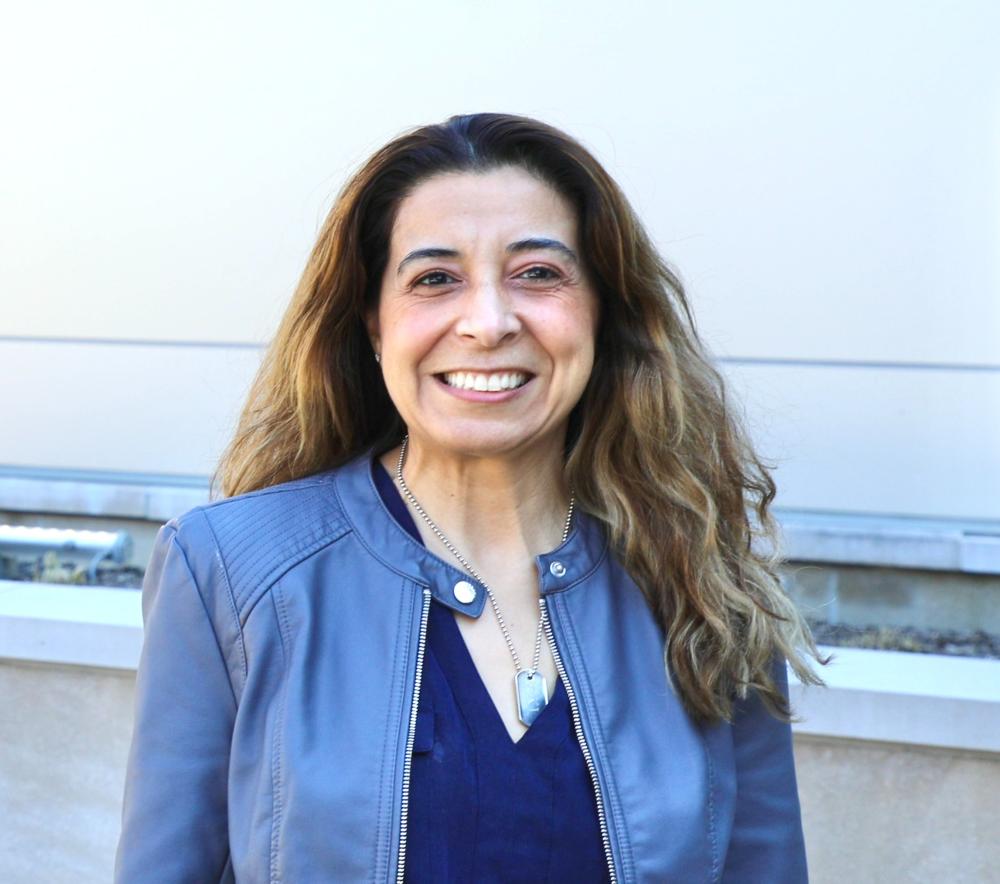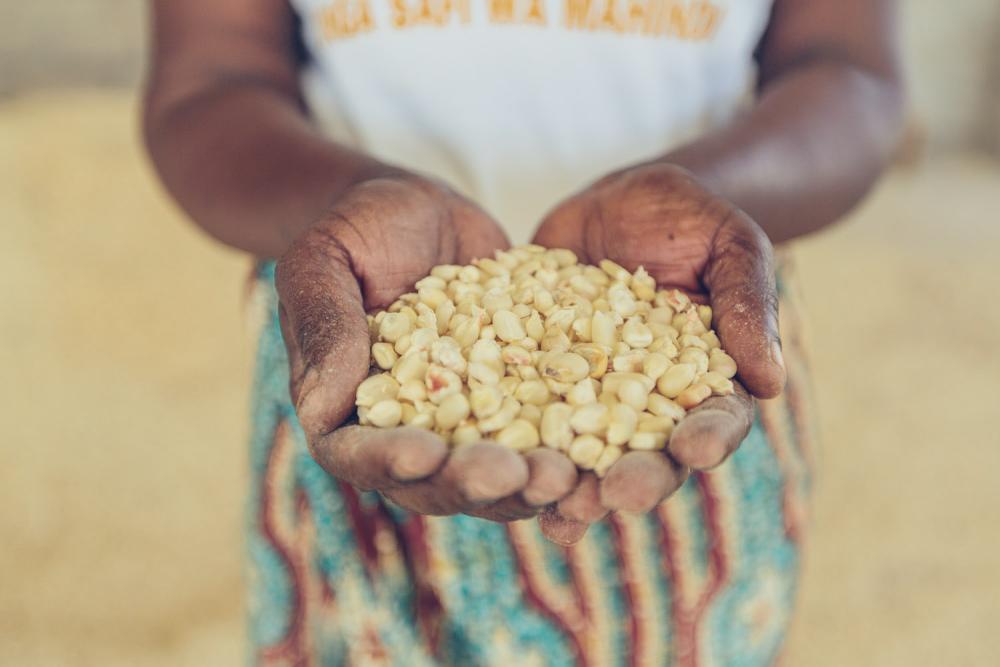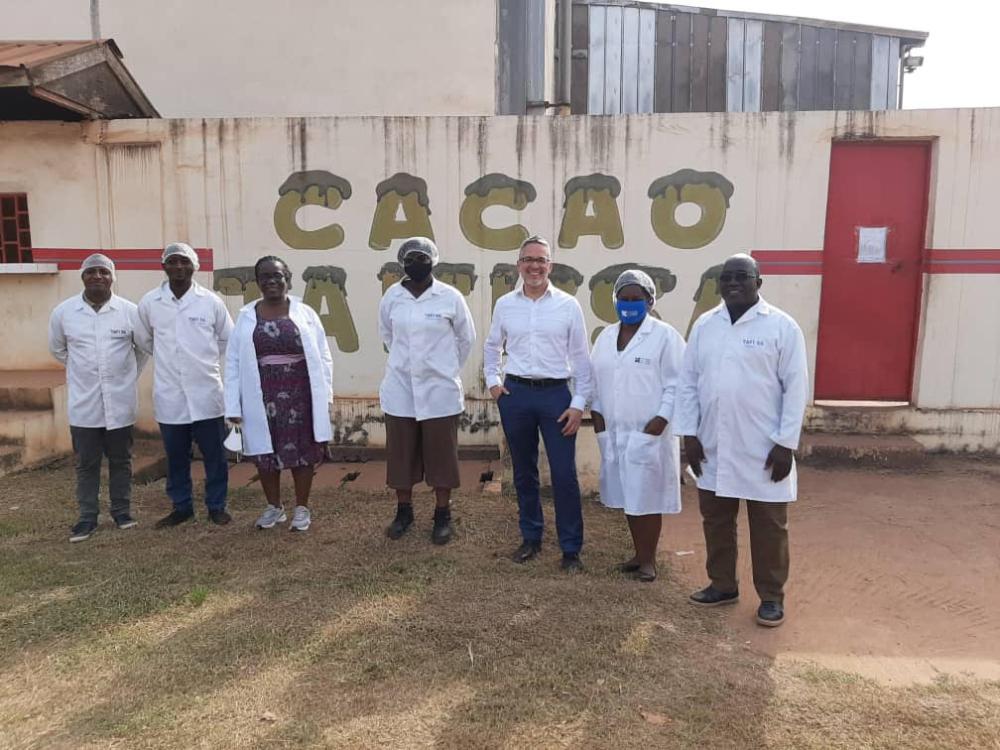
Smuckers Volunteers Create Nutritious Peanut Product for Kenyan Families
In Kenya, more than 25 percent of children under the age of five have stunted growth, a side effect of under-nutrition in young children. Stunting is the most frequent form of under-nutrition among young children and if not addressed, it has devastating long-term effects, including diminished mental and physical development. PFS client Delish & Nutri, a peanut processing company that has been bringing nutritious, easy, and affordable products to Kenyan families since 2017, was looking to help address under-nutrition in Kenya. With the right processing equipment already in place, Delish & Nutri knew they could partner with humanitarian organizations to help supply local communities with a new peanut product that is a ready-to-eat supplemental food (RUSF) – bringing much-needed nutrition to children across Kenya.
In collaboration with international development organization TechnoServe, USAID, and PFS, Zahra Moaddab, R&D scientist at The J.M. Smucker Co., helped bring this new product into development. Together with a volunteer group of two other product developers from General Mills and one project manager from Smucker, Zahra and the team developed a formulation standardized to meet the World Food Programme (WFP) requirements and desired quality. The team also provided recommendations on process steps, equipment, and packaging needs, along with simple testing methods to further check process capabilities and product quality in the future.
“We learned a lot from the interactions with the volunteers during the formulation project,” said James Muturi, managing director of Delish & Nutri. “In addition to receiving the RUSF formulation, we further gained knowledge on product development so that our team can make simple formulations to the already developed product formula in case there are changes on WFP requirements in the future.” James said his favorite part of the project was when the team tasted their first test batch of the RUSF formulation created by the volunteer team. “The product which we made from peanut paste, milk powder, sugar, and canola oil tasted so good. I realized then that we have made it.”
“My favorite part of the project was working with team members from different companies from around the world, and collaborating toward a common goal,” said Zahra. “I highly recommend anyone interested in helping others, and further improving your own personal and professional development, to join one of these projects. It’s a rewarding experience for all!”

Enhancing Food Safety From Farm to Fork
Born and raised in Morocco, Farah Varisco has a deep interest in unlocking Africa’s potential. Motivated by her desire to help others and use her skills for good, Farah, an analyst at The J.M. Smucker Co., signed up to support a risk assessment project with PFS client Seba Foods in Zambia. “In my day job as an analyst at Smucker, I can get really focused on my challenge at hand and forget about everything else that is going on around me,” said Farah. “Even being from modernized Africa, it can be a challenge to get the basics to people so I am glad I have this opportunity to help others and hopefully make their lives better.”
Seba Foods is an agro-food processing company specializing in the processing of maize and soya beans for more than 25 years. Seba works with its own network of registered smallholder farmers who supply the raw materials and supplement the crop requirements to produce a range of products including soya pieces, breakfast porridge, and corn soya blend (CSB).
“Zambia has its own unique challenges when it comes to threats and vulnerabilities so we’re in the process of gathering as much data as we can on their food safety and quality systems,” said Farah. “I typically do the analysis of our systems at Smucker and make sure we’re financially secure and sound. I’ve gone through quite a bit of a learning curve on this project since the country and products are completely new to me, but risk is risk and I am excited to be contributing toward improving food safety in Zambia.”
Although this project is not yet finished, the Seba Foods team has already learned a lot. “I’ve developed some good foundational knowledge around the creation and implementation of a risk assessment that we initially lacked,” said Teza Chika, quality assurance manager at Seba Foods. “A lot of information about how to go about it has been shared, to which some has already been implemented, but we are still developing the system to make it effective.”
The Seba Foods team said they’re grateful to have this opportunity to collaborate with PFS volunteers like Farah. “[The volunteers] serve as extra resources that infuse our work with the necessary experience, skill, and expertise that our institution may lack from time to time,” said Teza. “They bring about new ideas from their experiences that help our systems evolve to be more effective and we look forward to meeting with them every other week to learn more.”

Bringing Moments of Sweetness to Nigeria
For more than 40 years, Graceco Industries has been processing, packaging and distributing confectionery products across Nigeria. Known for their high-quality, affordable and delicious products, Graceco is on a mission to get more Nigerians baking. To build upon their strong reputation and provide more delicious products, Graceco looked to Partners in Food Solutions and their expert network for support. “Despite our decades of experience in confectionery processing, I knew we needed to strengthen our technical knowledge,” said Adedayo Oshinnaiye, executive director of operations and supply chain at Graceco. Together, Graceco and a team of PFS volunteers got to work on a shelf life extension project and cupcake recipe optimization project.
Overseeing the project work was Hershey Procurement Analyst Paul Brown. Paul joined the PFS volunteer network in April 2021 and a week later was paired with Graceco as their Client Lead. “Getting more involved with volunteering and the opportunity to learn more about another culture and new market while providing meaningful assistance to a growing company in Africa is what motivated me to join PFS,” said Paul. “Through my volunteer experience, I’ve been able to work with many great people at PFS, Graceco, General Mills, and Cargill, and have learned a lot about other areas of expertise.”
The project volunteer teams, led by Paul, were able to deliver amazing results. After several months, the team helped increase Graceco’s product margins by 10% and more than double their product’s shelf life. “Paul has been super helpful to our company,” said Adedayo. “He’s played a key role in helping us communicate our needs to the volunteer teams, manage the team’s responsibilities and project timeline, and even shared his technical expertise with us. Paul has enabled our company to move forward
and grow.” Graceco attributes the success of their famous ‘princess cupcakes’ in the market to this project and volunteer team.
Paul is still supporting Graceco as their Client Lead today and is currently overseeing several new projects including a baby food formula and a cupcake packaging project.

Feeding a Community a Thousand Miles Away
With almost half of its population unable to meet minimum caloric requirements, Zambia has one of the highest malnutrition rates in the world. Many of the people affected are women and children. Omega Foods, a Zambian women-owned grains company, noticed that there was an opportunity to provide nutritious and safe grains, and improve the livelihoods of smallholder farmers in the area. Established in 2015, Omega Foods now produces several nutritious staple products including millet, maize and sorghum, and focuses on nourishing women and children in the community.
Supporting Omega Foods in their journey to produce more affordable, safe and healthy food is Hershey Senior Analyst - Growth & Strategy Lauren Hall. Lauren joined Omega Foods as their volunteer Client Lead in May 2021 and has helped oversee several projects since she began. “Lauren has been instrumental in making sure our projects are successful,” said Omega Foods founder and managing director Justina Opit. “I am so grateful to have her as our Client Lead!”
To date, Lauren has overseen the completion of a plant design review project and is currently managing a good manufacturing practices project that will improve Omega’s food safety and quality processes. “Our partnerships with PFS volunteers, TechnoServe, and USAID, play a valuable role in our success,” said Justina. “The support offered to me and my staff as we focus on improving our business is key to our growth. We look forward to continuing our partnership!”

Strengthening the Cocoa Value Chain in Côte d'Ivoire
In West Africa, where approximately two million smallholder farms are responsible for producing 70 percent of the world’s cocoa supply, cocoa farming is essential to community livelihoods. Since 2017, The Hershey Company has been working closely with PFS client Tafissa, a woman-owned company located in San Pedro, Côte d’Ivoire, which is the sole wholly Ivorian-owned processor of cocoa in the country. “Hershey has been a great partner to work with,” said PFS Côte d’Ivoire Program Manager Caroline Bamba. “From food safety and quality to marketing and business strategy, Hershey volunteers have played an integral role in addressing some of Tafissa’s challenges.”
Last year, Hershey volunteers Marc Rinaldi and Rosaline Schilling started working on a cocoa bean processing and quality management system project with Tafissa. Both of these projects play a vital role in ensuring that Tafissa remains competitive in the cocoa industry and can produce high-quality and safe products. “Having Marc and Rosaline on these project teams is very helpful,” said Caroline. “Their input is making a huge difference in understanding operational issues and fixing them.” In 2022, Hershey Director of Cocoa Partnerships Tim McCoy had the opportunity to visit the Tafissa factory. “My visit was really insightful and inspiring,” said Tim. “To see firsthand the impact that we’ve been able to have as a company on Tafissa’s operations and to see the improvements in business is very rewarding!”
In addition to providing volunteer expertise, The Hershey Company is an important buyer of Tafissa’s cocoa butter. Since the first contract began in 2018, Hershey has purchased over 350 tons of cocoa butter. “We’re proud to work with great companies like Tafissa,” said Tim. “We’ve had a great partnership over the years and look forward to seeing Tafissa continue to grow in the future and achieve even more success.”